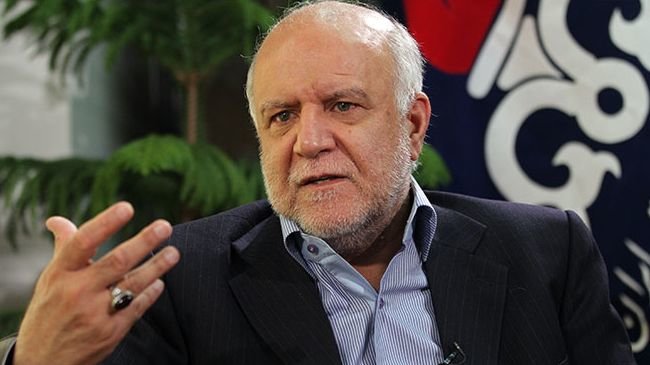OPEC 'friends' dumping crude oil: Zanganeh

Iranian oil Minister Bijan Zanganeh accused its regional neighbors of trying to take away its customers by offering cheaper oil, but said despite not offering much of a price discount itself, Iran had managed to retake 1 million b/d.
Iran's crude is similar to Iraq and Saudi Arabia's and these producers fight for a share of the same market -- being competitive has proved a huge marketing challenge.
Zanganeh's remarks come in an interview with S&P Global Platts in Vienna Friday, the day after OPEC's meeting in the Austrian capital. It follows Saudi Arabia's new oil minister Khalid al-Falih's comment Thursday that there is "no reason to expect that Saudi Arabia is going to go on a flooding campaign," suggesting gentle moves in crude supply so as not to shock the market. OPEC's largest producer has kept output fairly steady since January at above 10 million b/d and OPEC made no change in output policy.
Iran has looked to reclaim market share since nuclear sanctions were lifted in mid-January, with Zanganeh stating that output is currently 3.82 million b/d. He predicts Iran will have around 5-6% spare production capacity after reaching 4 million b/d by the end of the year.
Zanganeh said India, China, South Korea, Europe (including Turkey) and South Africa were primary markets but that Iran "should look more in Europe and Africa."
This is especially the case for plans to invest in refineries in other countries, with 1.3-1.4 million b/d to be exported as feedstock to overseas refineries, but cautioned that finance could be an issue.
"We have this proposal but the National Iranian Oil Company doesn't have the money to do it. So we proposed that the National Development Fund comes and does the investment, either directly itself or giving loans to non-state sectors and buys [shares] in those refineries in the chosen destinations, under the condition that they take all their feedstock from Iran, or a main part of the feedstock," Zanganeh said.
OPEC quotas need to return
Iran's oil minister wants to see a return to individual country quotas at OPEC, which were abandoned in 2011 for a notional overall ceiling which was also abandoned in December 2015.
"I am not against the ceiling but what's the point of a ceiling without a country quota. OPEC says it will produce 30 million b/d. How much for each country? When we set the 30 million b/d ceiling, and somebody produced more, you should be able to hold them responsible. You should be able to control and monitor and question them why they exceeded the production. And everybody should comply with it," Zanganeh said.
He called the removal of quotas OPEC's biggest historic mistake and said that it was just a matter of time before a consensus is reached in reactivating them. "It is inevitable, but I don't know when."
Zanganeh said attempts to freeze production at the meeting between OPEC and other producers in Doha in mid-April didn't make sense for Iran.
"If others wanted to freeze or make any other move for the market, we expressed support for it and we will still support any move. But we said that the primary thing for Iran that everyone agrees with it too regaining its historic share," Zanganeh said.
Positive OPEC meeting
Iran echoed the sentiment that the outcome in Vienna was the best possible result. The cartel on Thursday kept its output policy unchanged, declining to set a production ceiling or target at its ministerial meeting and confirming a course set by core members who have refused to intervene to prop up prices.
Zanganeh hoped the trend of higher prices seen since crude hit a low of under $30/b in late January continues, especially "as the gap between supply and demand is shrinking." He also said it was a particularly good meeting for Iran. "I think all [OPEC members] accepted [that] they cannot put pressure on others to change their ideas. And they accepted this reality in the market and accepted the return of Iran to the market."
Zanganeh said that OPEC members should be more conservative about the level of production as so not to destabilize the market. "I believe all member countries are going to be more realistic," he added. "It means everything to all producers to stabilize the situation."
Iran investment
Zanganeh stressed it was very lucrative for international energy companies such as Total, Lukoil and Eni to invest in Iran. "Oil [production] in our region is very low. In Iran, it costs a maximum of $10/b."
He said that there are contractual risks, but that was unlikely to act as a deterrent, without elaborating.
He did think that U.S. companies were afraid but hoped that this will change. "The way is open for them on our side."
Zanganeh said the whole investment plan will require a total of $70 billion in the coming years and that Iran's Petroleum Contract will be part of that.
Iran plans fewer than 20 projects as part of the first tenders for the IPC. It has said that it will have its IPC ready and approved in June to soon put out the tenders.
"First we announce the fields and ask companies to come forward and [declare] their interests in any of those fields. We evaluate the companies regarding their technological and financial capabilities and then we put the tender documents at their disposal," he added.
(Source: Platts)
Leave a Comment